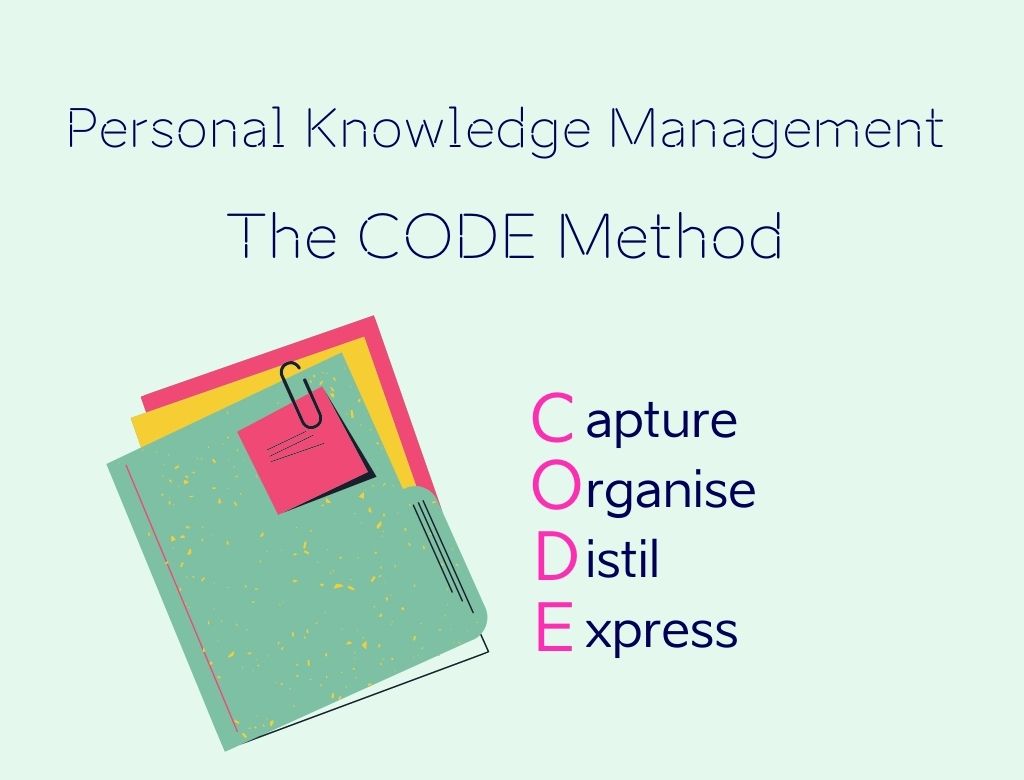

What is Personal Knowledge Management (PKM)
Personal knowledge management (PKM) is a process of collecting information that a person uses to gather, classify, store, search, retrieve and share knowledge in their daily activities and the way in which these processes support work activities. It is a response to the idea that knowledge workers need to be responsible for their own growth and learning. (Wikipedia)
A personal knowledge management system is a place to filter, store, explore, and connect ideas and information that can range from a series of index cards shoved in shoeboxes to volumes of journals stacked neatly on shelves. There’s no right or wrong way to create a personal knowledge management system. Ideally it should be designed in such a way that allows you to easily find whatever it is you’re looking for. It should provide a way to link notes together, creating a network of ideas forming your own personal knowledge base. (source)
Personal Knowledge Management systems rest upon these four pillars that transform raw, messy data into something you can actually use:
| Capture | At the start of any knowledge management journey is the gathering and capturing of information. This could be from journal articles, books, webinars, meetings, presentations, videos etc. You must feed your brain for you to develop new ideas and learn new concepts. |
| Organize | Breaking down the captured information into manageable chunks and assembling it in a way that makes sense to you. This could mean categorizing notes by topic, project, or any method that helps you navigate your knowledge pool efficiently. |
| Distill | Extracting the essence from the organized information. It’s about sifting through your collection to highlight the pieces of knowledge most relevant to your pursuits. Mind Mapping is a great way to store knowledge and can help you to learn by seeing the big picture of the subject. (We will talk about mind mapping later in this LibGuide) |
| Express | Turning your distilled knowledge into impactful output. This could be anything from a blog post or a solution to a problem. |

From: Personal knowledge management for e-residents. (2023, April 17). E-Residency. https://www.e-resident.gov.ee/blog/posts/personal-knowledge-management-for-e-residents/
A PKM system helps you organize, store, and retrieve information efficiently and leads to improved productivity and decision-making. By centralizing important insights, notes, and resources, a PKM system enables easier access to knowledge, fosters better learning, and supports continuous personal growth. With a PKM system, you can make connections between ideas, track progress, and ultimately enhance both personal and professional effectiveness.
To manage personal knowledge effectively, you can:
A PKM tool Walkthrough
You might be wondering how to begin managing your knowledge. Here's a video showcasing Notion, one of the most popular PKM tools, to give you an idea of how the system works.